On 21 March, HERACLES, a partner in the AURORA project, was pleased to host its conference on “Transition to Zero Carbon” (see agenda below) in the auditorium of the Greek Technical Chamber, Magnesia Dpt. The event coincided with a visit by SINTEF and ACC teams to the Volos cement plant.
As part of the European Green Deal, the European Commission proposed in September 2020 to raise the target for reducing greenhouse gas emissions to at least 55% by 2030 compared to 1990 levels. In addition, the European Union (EU) is aiming for climate neutrality by 2050, i.e. zero net greenhouse gas emissions.
By focusing on net greenhouse gas emissions and energy transition, Greece’s National Recovery and Resilience Plan implements a series of actions aimed at tackling the climate crisis by reducing carbon dioxide emissions.
The “Transition to Zero-carbon target” conference was aimed at the local authorities, engineers from local industries, university staff, students and journalists from the local media in attendance.
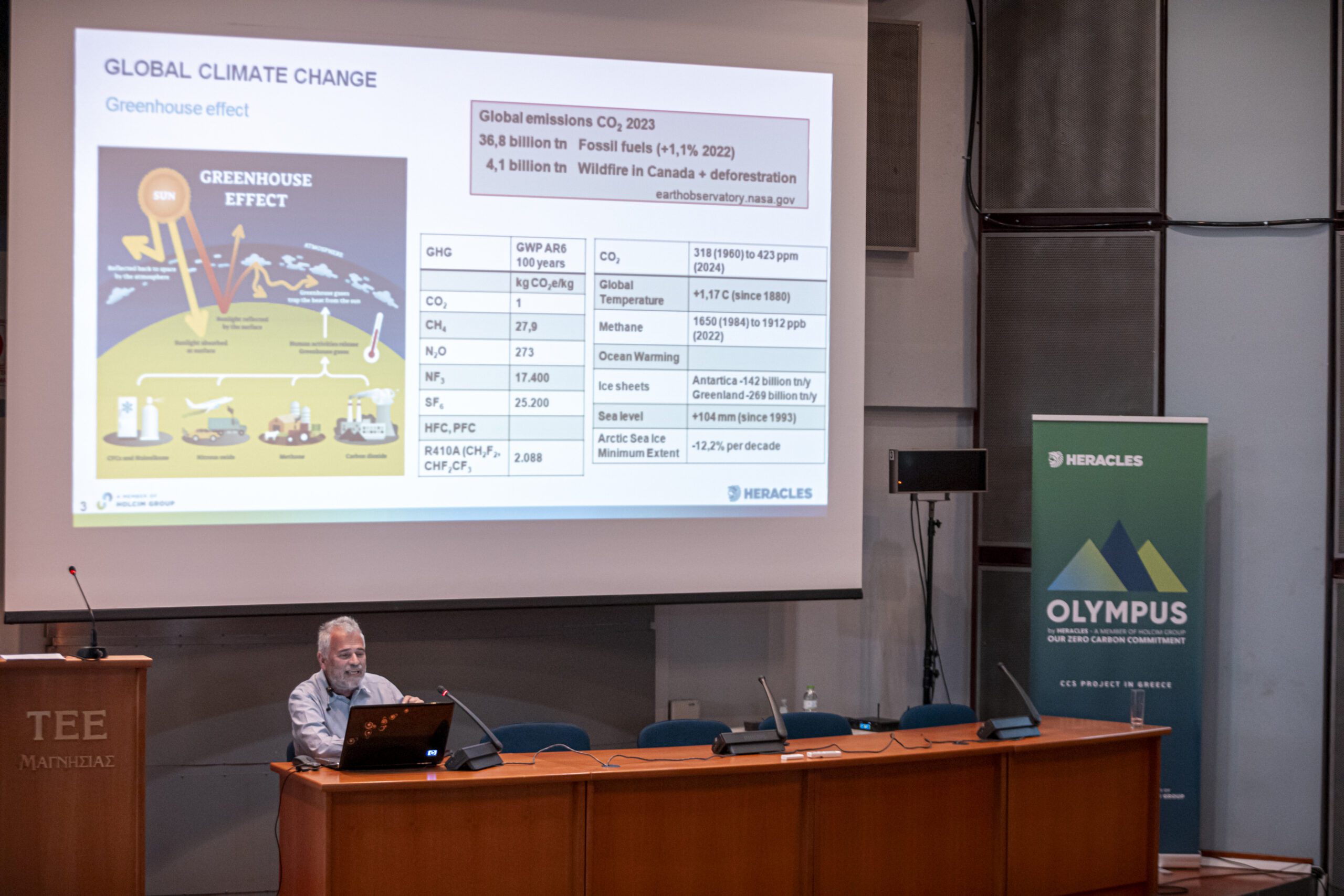
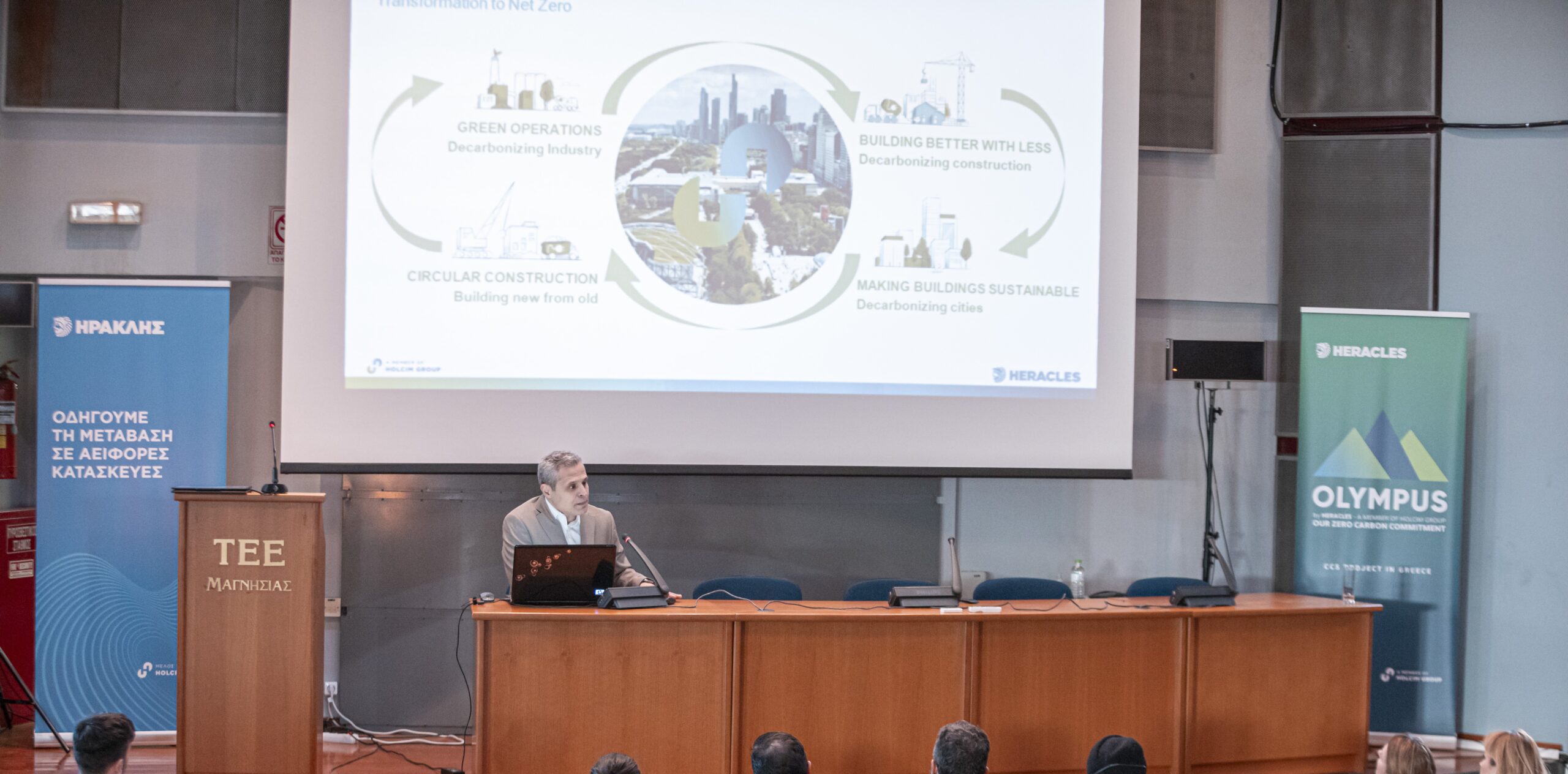
HERACLES’ medium-term objectives and short-term investment in carbon capture and storage (CCS) at the Milaki cement plant in Evia (Greece) were presented by Vasilis Kaloidas (left) and Charalampos Kouris (right).
Milaki cement plant in Evia, Greece
HERACLES‘ participation in nationally (CoCCUS) and European (OLYMPUS & AURORA) funded research projects.
The OLYMPUS project aims to the green transformation of HERACLES Group’s cement production plant in Milaki, Evia, into a net zero carbon facility, utilizing innovative carbon capture and storage technologies (Carbon Capture Storage – CCS).
The investment focuses on cryogenic CCS to capture all of the plant’s CO2 emissions. The OLYMPUS project has received €124.5 million from the EU Innovation Fund, out of a total budget of more than €300 million.
The presentations were made by Nasos Koutsianos from the Chemical Processes and Energy Resources Institue (CPERI), and Konstantinos Rigkos from the Institute for Bio-innovation.
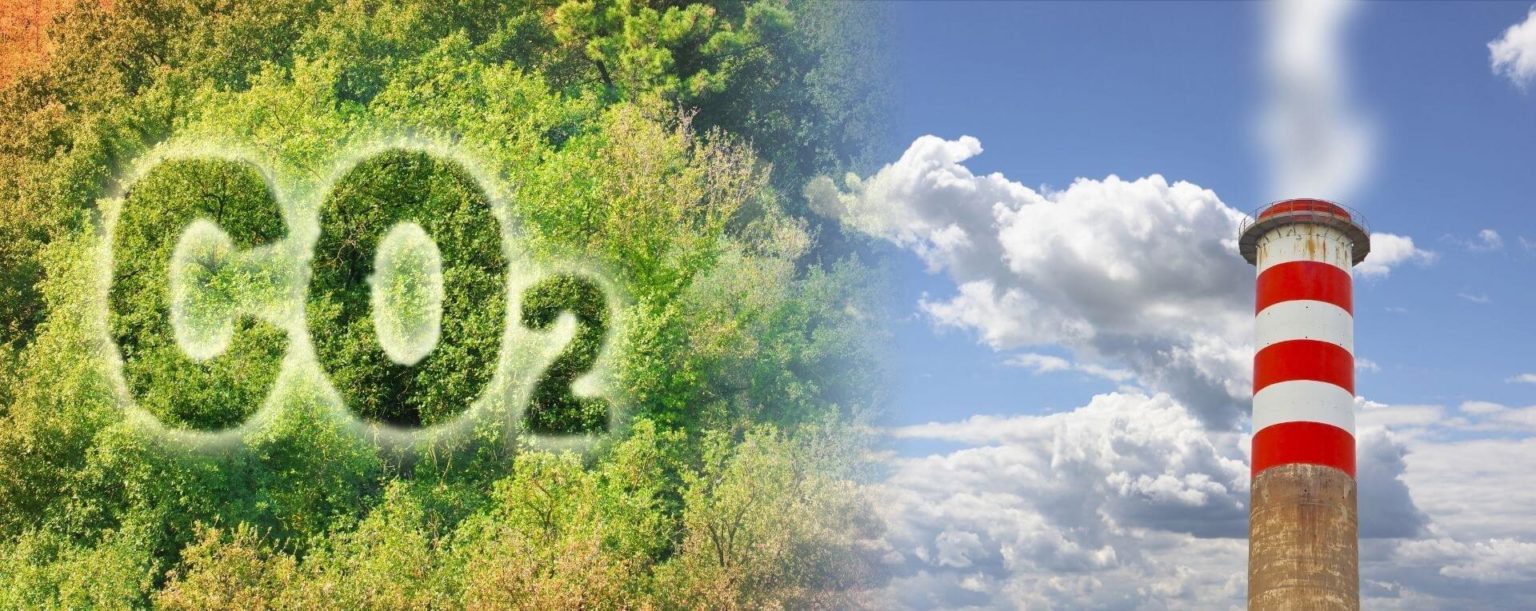
To achieve its climate neutrality objective, the European Regional Development Fund (ERDF) is funding the CoCCUS programme entitled “Cost-effective CO2 Capture and Utilization from magnesite/lime industry using enzyme boosted K2CO3 Solvents”
The CoCCUS project involves the development of an enzymatic process for CCS and the discovery and development of a carbonic anhydrase enzyme that can withstand temperatures higher than commercial temperatures (70°C).
As part of the European Green Deal, the European Commission proposed in September 2020 to increase the greenhouse gas emission reduction target in 2030 to at least 55% compared to 1990 levels.
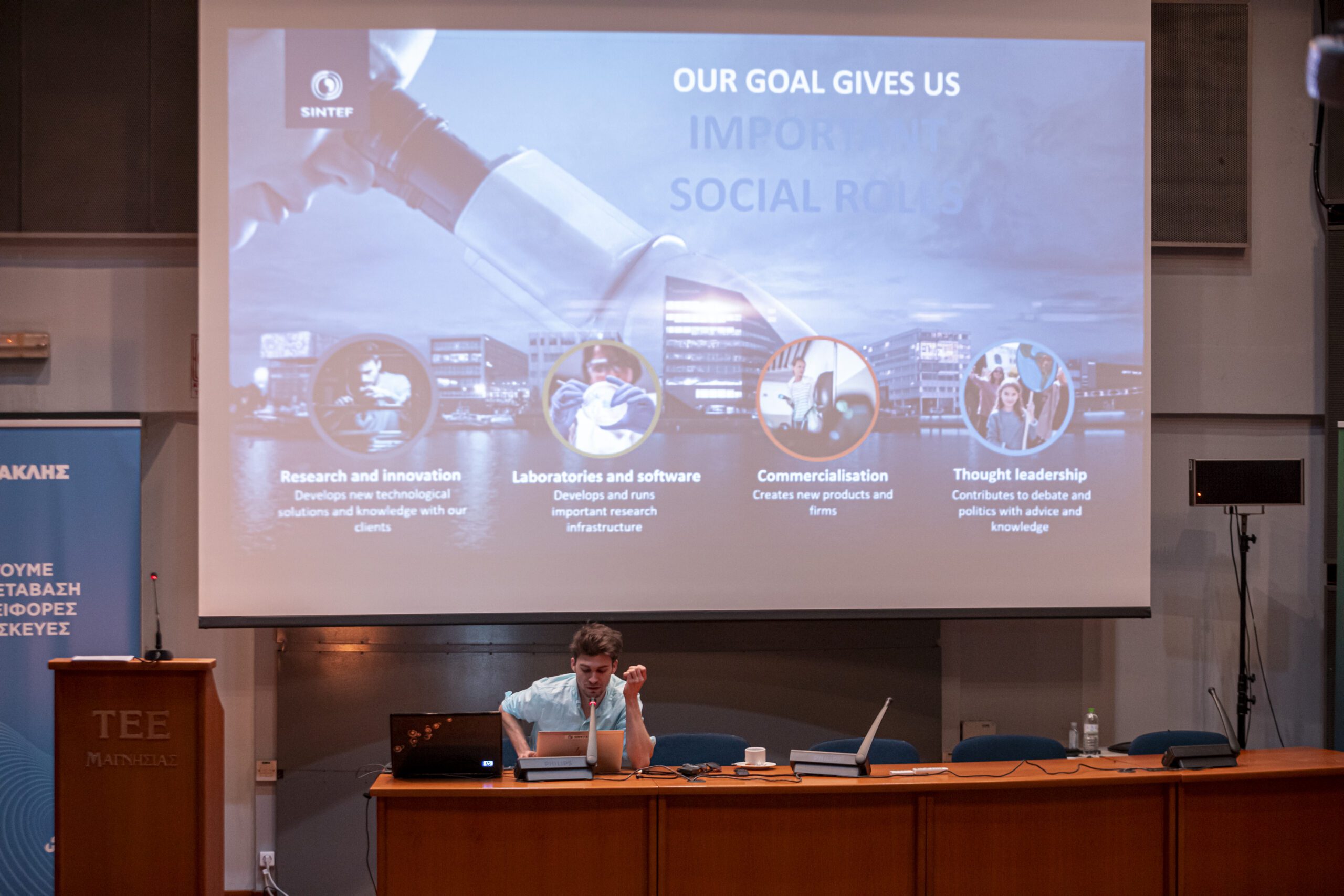
A comprehensive presentation of SINTEF activities, an overview of the AURORA project, its specific objectives, and the measurement campaign in Greece were presented by Karol Michalski from SINTEF.
Previous cement campaigns at the Brevic plant, energy considerations and steps towards the eventual commercialisation of CCS using CESAR1 amine solvents were discussed in detail.
Ricardo Wanderley from Aker Carbon Capture (AURORA project parner) explained the operation and use of the mobile test unit (MTU), which is due to be installed at the Volos cement plant as part of the AURORA project.
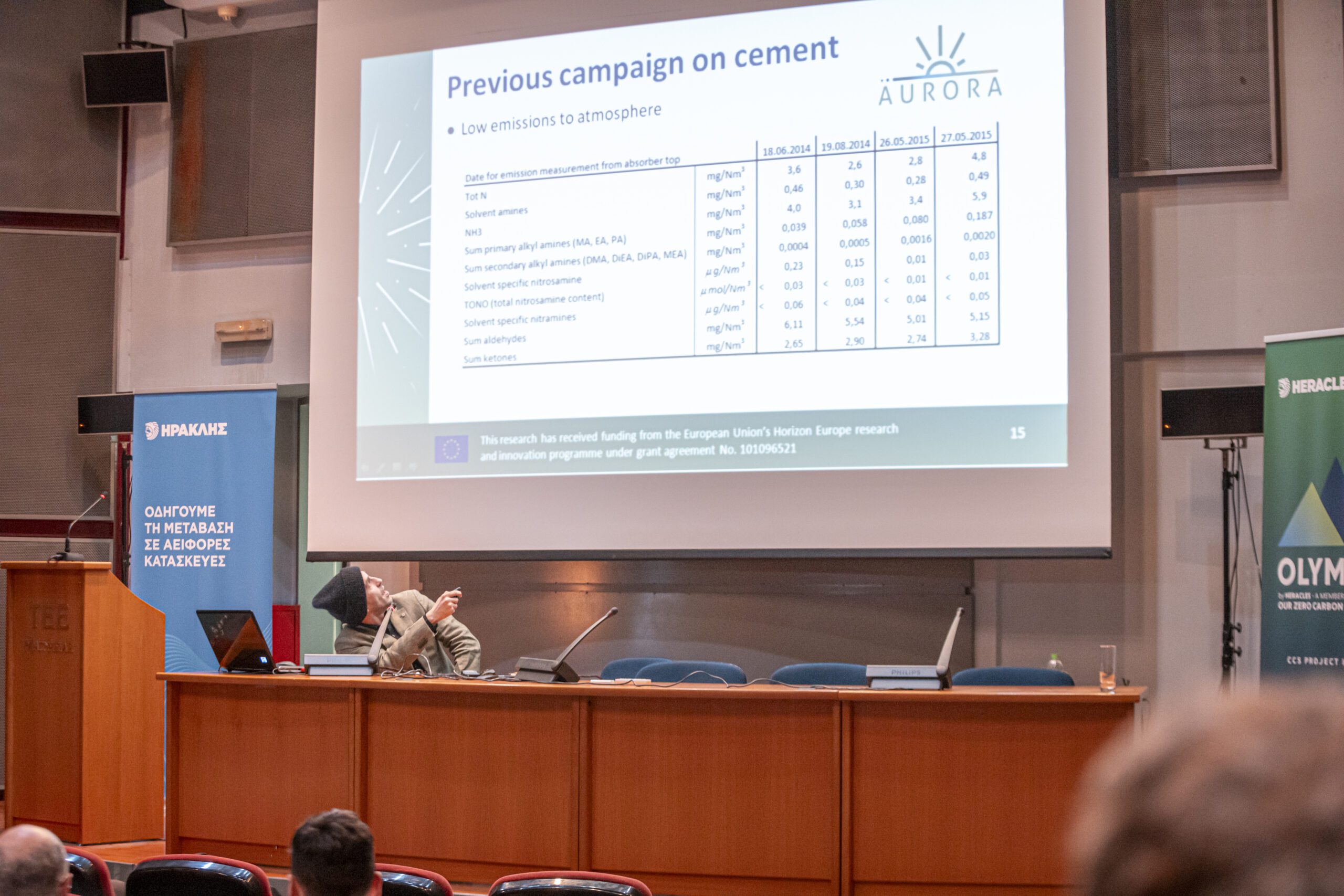
Learn more about the event programme…
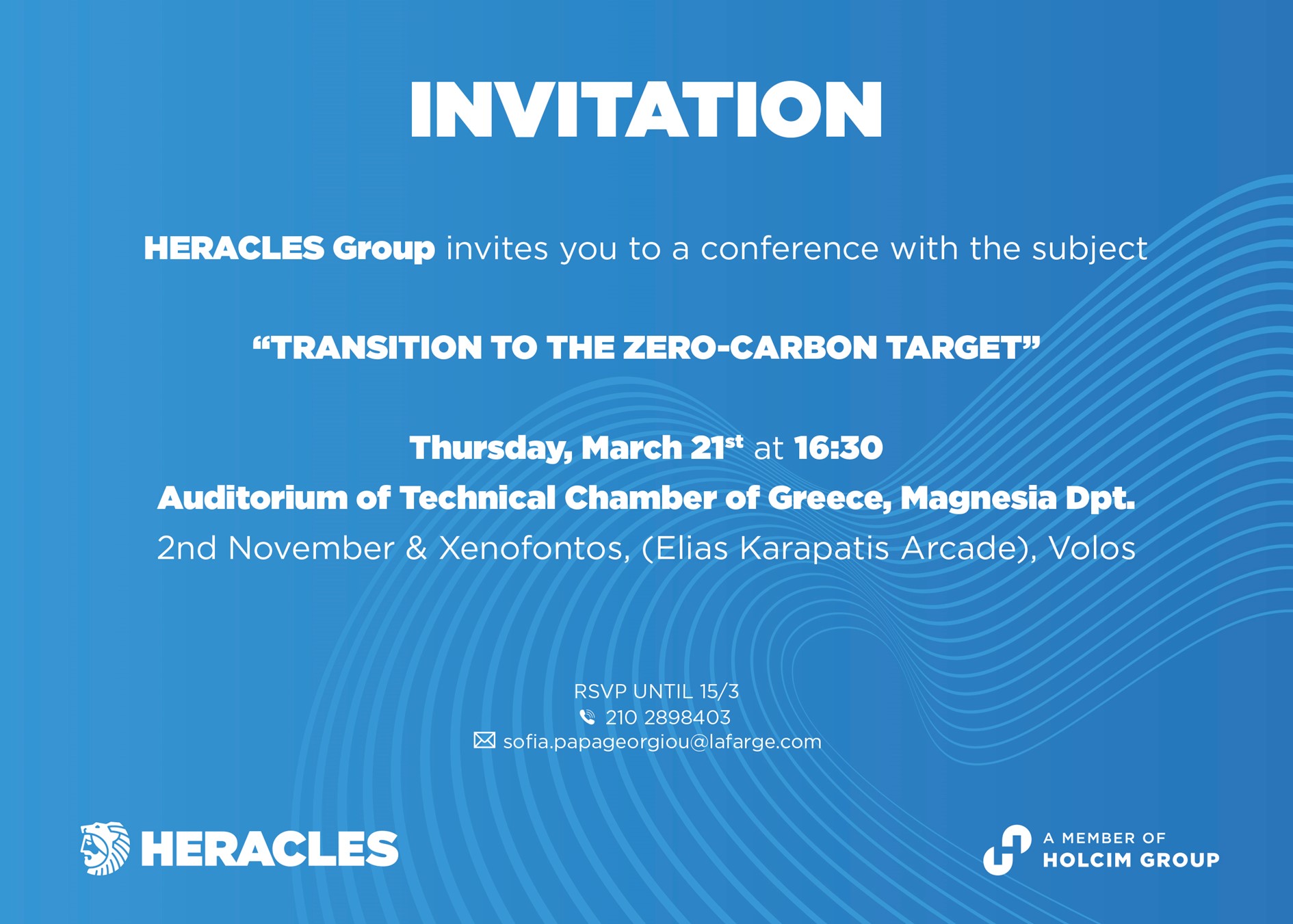
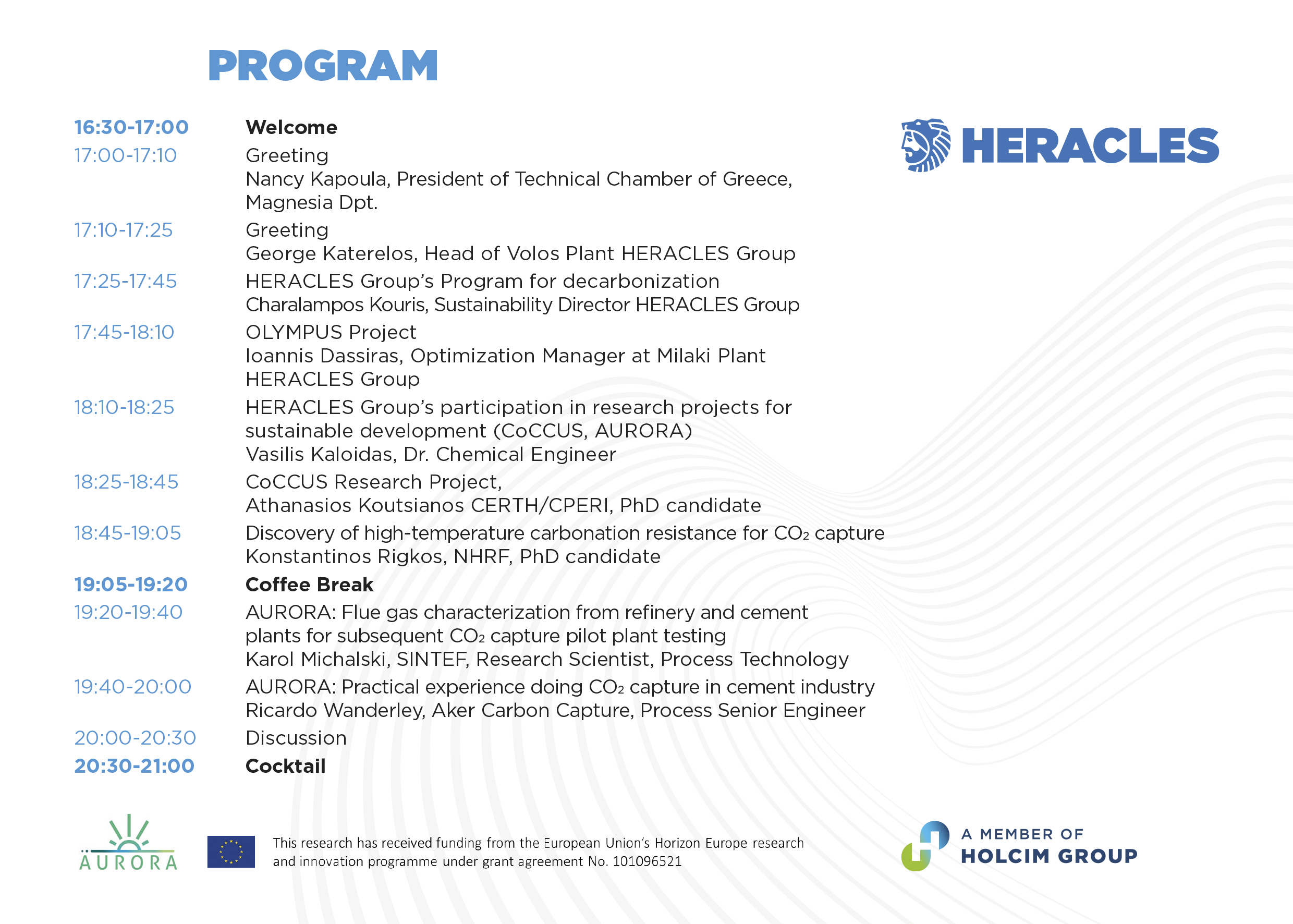
Who is the HERACLES Group?
HERACLES Group is a member of Holcim and holds a leading position in the Greek building materials industry.
Join us at the European Cement Decarbonisation Summit 2024 | Oct. 30th – 31st in Hamburg (Germany)
We are excited to announce that the AURORA project, coordinated by SINTEF, will be prominently featured at the upcoming European…
GHGT-17 – Greenhouse Gas Control Technologies conference conference in Calgary, Canada | October, 20-24
In October, the AURORA project partners will take part in the 17th International Conference on Greenhouse Gas Control Technologies (GHGT-17)…

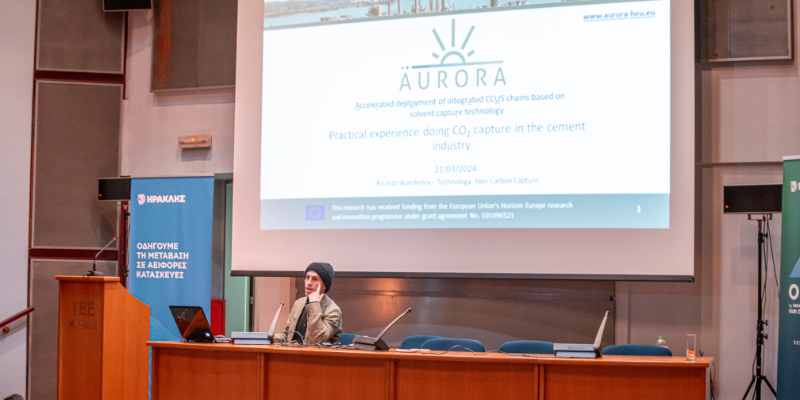
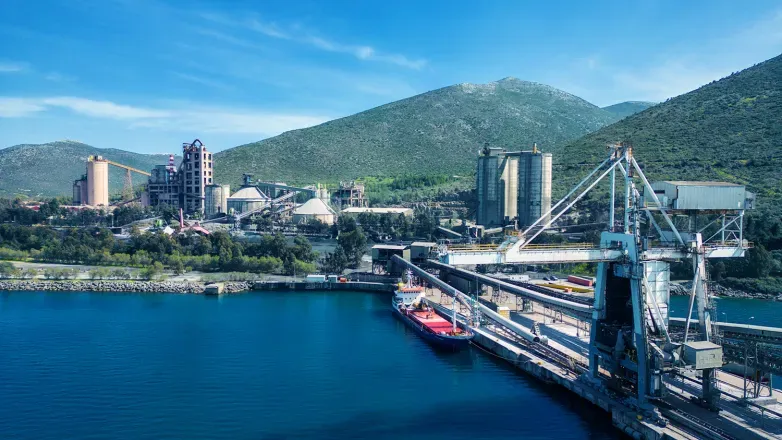

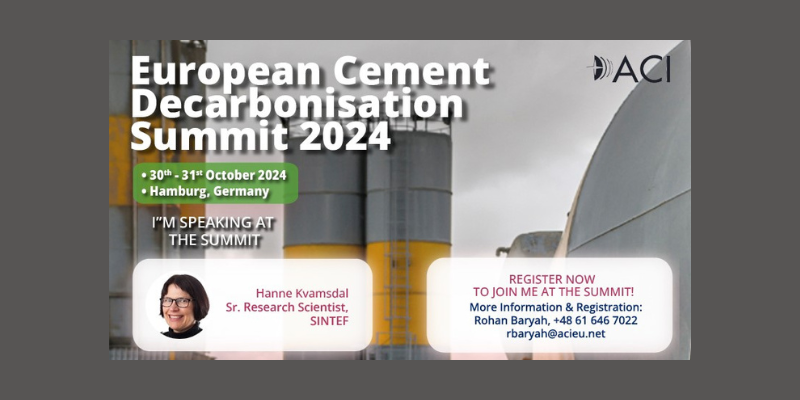

pim8qz
Great site with quality based content. You’ve done a remarkable job in discussing. Check out my website webemail24 about Website Design and I look forward to seeing more of your great posts.
Hurray, this is just the right information that I needed. You make me want to learn more! Stop by my page Seoranko about Anime.
Can you be more specific about the content of your article? After reading it, I still have some doubts. Hope you can help me.
You’ve done an impressive work on your website in covering the topic. I am working on content about Bitcoin and thought you might like to check out ArticleHome and let me what you think.
I like how well-written and informative your content is. You have actually given us, your readers, brilliant information and not just filled up your blog with flowery texts like many blogs today do. If you visit my website Autoprofi about Auto Export, I’m sure you can also find something for yourself.
Very interesting details you have remarked, regards for
posting.Blog range
Hi there, I simply couldn’t leave your website without saying that I appreciate the information you supply to your visitors. Here’s mine Articlecity and I cover the same topic you might want to get some insights about Cosplay.
Pretty component of content. I simply stumbled upon your web site and in accession capital to say that
I acquire in fact loved account your weblog posts. Anyway I will be subscribing in your augment and even I
fulfillment you access persistently fast.
Superb posts! Have a look at my page Articleworld where I also put in extra effort to create quality information about Website Design.
Wow, this post has given me useful info and answered some of my questions. I hope to give something back and aid others like you helped me. Feel free to surf my website Article Sphere about Blogging.
Hello it’s me, I am also visiting this web site on a regular
basis, this site is in fact good and the viewers are in fact sharing nice thoughts.
Your article helped me a lot, is there any more related content? Thanks!